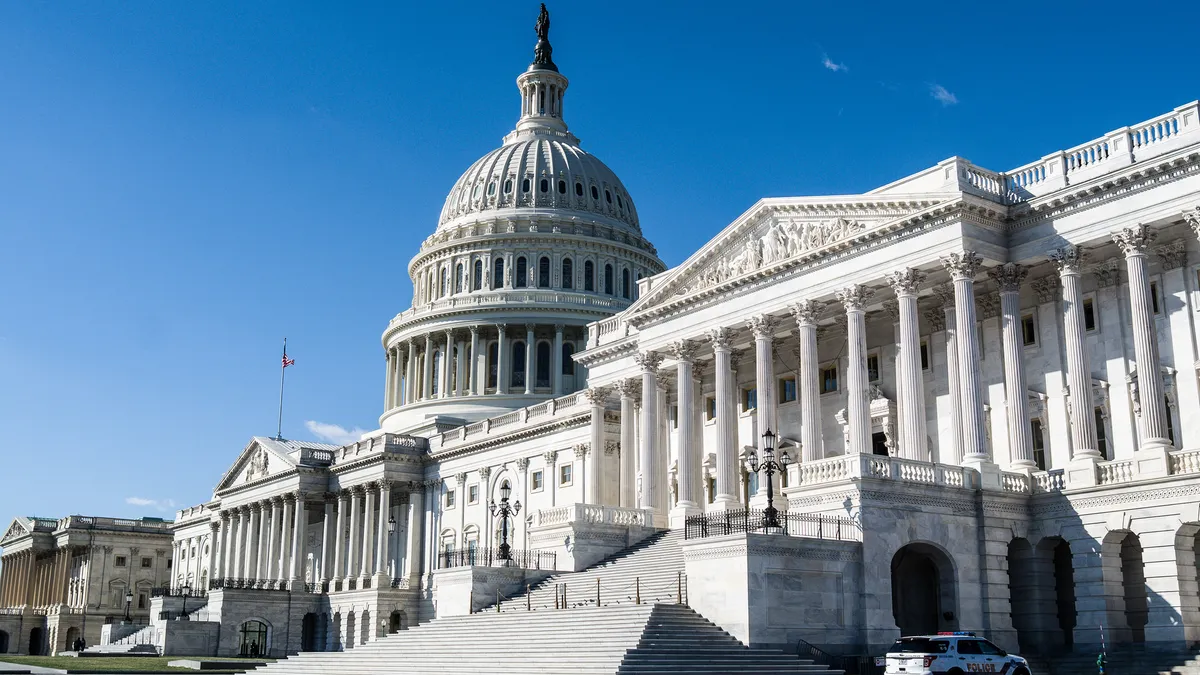UPDATE: MARCH 17, 2020: The U.S. House of Representatives passed the revised coronavirus bill by unanimous consent Monday night, scaling back the proposed leave offering and providing an exemption for small businesses, according to the Wall Street Journal. The U.S. Senate could take up the bill as early as Tuesday, Politico reported.
UPDATE: MARCH 16, 2020: The U.S. House of Representatives will need to vote once more on its emergency coronavirus bill due to unspecified, "agreed-upon 'technical' changes" to that bill, Roll Call reported.
The development may allow small businesses to lobby for additional changes to the bill before the U.S. Senate votes on it, per the report. Some small businesses are reportedly "unhappy" with provisions in the bill that offer up to 12 weeks of paid leave for workers, Roll Call said.
A spokesperson for the House Committee on Education and Labor told HR Dive that generally, technical changes are approved through "a simple unanimous consent request," but did not offer further details about the changes.
Dive Brief:
- The U.S. House of Representatives passed a sweeping paid leave bill March 14 in response to the new coronavirus, and President Donald Trump tweeted his support shortly thereafter.
- Among other things, the bill would mandate up to 80 hours of sick leave beyond what employers usually provide "to quarantine or seek a diagnosis or preventive care for coronavirus" for those at companies with 500 or fewer employees. It also mandates paid leave at a rate of at least two-thirds an employee's regular rate "to care for a family member for such purposes or to care for a child whose school has closed, or child care provider is unavailable, due to the coronavirus," according to a bill summary.
- The bill also would temporarily amend the Family and Medical Leave Act, creating protections for certain leave related to the new coronavirus.
Dive Insight:
Recent efforts to pass federal paid sick leave legislation have stalled but this latest bill may find success where others haven't, according to one expert. Trump urged lawmakers to support the measure, "virtually assuring a swift run through the Senate and his signature," wrote Jonathan T. Hyman, a partner at Meyers, Roman, Friedberg & Lewis, in a blog post.
If passed, details will be provided by the U.S. Department of Labor in the form of regulations, the president said, which "will provide flexibility so that in no way will Small Businesses be hurt."
The Senate may consider the bill Monday, March 16, according to various media reports.














